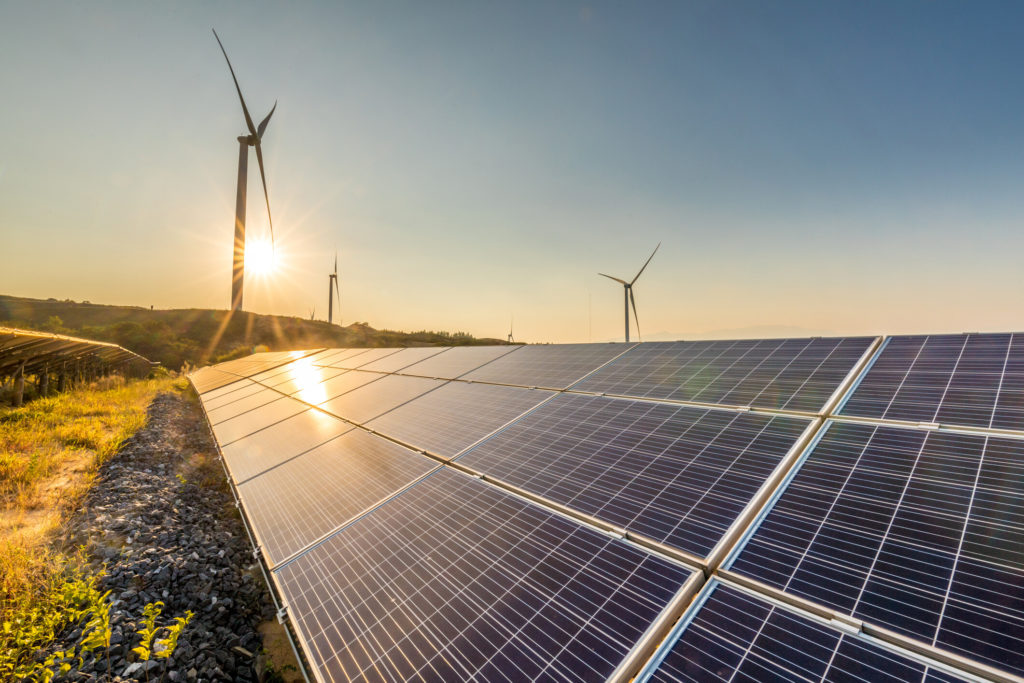
Cloud foundations spur innovation, support sustainability goals
Clean Energy Regulator strides ahead with data and AI trials to accelerate emissions reduction in Australia
The Clean Energy Regulator is poised to undertake a series of trials harnessing Microsoft Azure artificial intelligence (AI) services that will help create evidence-based decision making tools to support emissions reduction in Australia and contribute to developing a cleaner and more sustainable national economy.
The Regulator administers schemes legislated by the Australian Government for measuring, managing, reducing or offsetting Australia’s carbon emissions. It has administrative oversight of the National Greenhouse and Energy Reporting Scheme, the Emissions Reduction Fund, the Renewable Energy Target and the Australian National Registry of Emissions Units.
Having largely completed an enterprise-wide digital transformation which has seen the Regulator embrace Microsoft Azure, Microsoft 365, Teams, Power BI for reporting and Dynamics 365 to deliver a single view of the client, the Regulator has been able to rein in IT costs while opening the door to the opportunity for increased innovation.
All transformation services were undertaken by the Regulator, with support from Microsoft Fast Track Centre and Services units. It took less than six months to migrate the data centre into Azure, with only a single system remaining, which will be moved during September.
The Regulator has deployed Power BI for reporting internally, and is continuing to expand this capability, led by the business, and with a champions program, where Regulator staff provide in-house training.

The Regulator is currently exploring with Microsoft the potential use of machine learning to aid human decision making in its regulatory work and its assessment of large data sets.
Steven Stolk, Chief Information Officer, says that embracing the Microsoft Azure platform means the Regulator has access to a broad array of Azure services such as cognitive services and blockchain, that might be otherwise prohibitive for a relatively small agency.
“Once established in Azure, there’s a number of extensions available to your tech stack, which normally would be more complex to add and integrate.
“From a small agency point of view, you get a good solid footprint, and as long as you risk assess and mitigate or manage properly, you can then leverage to do more and more.”
Both Microsoft’s products and its people were critical to the Regulator’s rapid and successful move to the Cloud ‘just in time’ to quickly work from home in response to COVID-19. We now have a strong foundation to pursue further innovation. – Mark Williamson, an Executive General Manager at the Clean Energy Regulator
Lee Hickin, National technology officer, Microsoft Australia said; “The work that the Regulator performs is of significant national value, and we are proud of our partnership in helping them to ensure a clean energy future for Australia, by providing them with digital platforms that enable streamlined access to data and the opportunity for rapid ongoing innovation.
“Sustainability is an issue of profound importance to Microsoft. We have been carbon neutral across the world since 2012, and are committed to being carbon negative by 2030 through a combination of technology innovation to reduce carbon emissions and carbon offsets. The important work that the Regulator undertakes will help all organisations build more sustainable operations and having access to advanced Azure services such as AI and blockchain can help to accelerate their progress.”
Stolk, who leads a team of 32 people, has spurred the Regulator’s Agile approach to innovation, and is now exploring how it might be able to break open silos of data and weave a data fabric that provides much greater transparency about Australia’s energy supply and demand as well as how renewable sources are performing.
A significant portion of the Regulator’s data is collected by external organisations and being able to quickly and efficiently consume this data to produce meaningful insights and analysis, is critical. New businesses are being established in the sector and are generating power (for example, supermarkets with solar panels on their rooftops). Access to accurate and timely data revealing how much power they are adding to the grid, and how much power they are consuming, is key for refining policy and payments of financial credits.
As part of its data-centric approach, the Regulator in collaboration with industry has already developed a Solar Panel Validation system, which provides smart phone apps, verification services and registers of the serial numbers of solar panels installed across Australia, reducing the risk of ineligible panels being installed in order to ensure quality and the integrity of Commonwealth entitlements. This initiative delivers substantial de-regulation benefits as it also automates claims for renewable energy certificates being lodged and allows certificates to be issued within 24 hours.
While the cloud transformation is helping to accelerate the Regulator’s opportunities for innovation, it has also played a significant role in ensuring continuity of operations during the pandemic.
Equipping its 450 personnel with Microsoft Surface devices and headsets allowed the Regulator to rapidly switch to a work-from-home model in response to COVID-19. Staff adopted the new way of working very rapidly, with Teams supporting collaboration and communications, including voice and video calls, regardless of where personnel were located.
Committed to the Australian Signals Directorate recommendations regarding maximising cyber security, the Regulator is also looking to raise its security posture. Stolk said it is now exploring how Azure Sentinel could be leveraged, is planning to deploy Windows Hello to authenticate users wherever they are working, and also roll out multi factor authentication to assure the bona fides of external clients who connect to the Regulator.
Mark Williamson, an Executive General Manager at the Clean Energy Regulator, said; “Both Microsoft’s products and its people were critical to the Regulator’s rapid and successful move to the Cloud ‘just in time’ to quickly work from home in response to COVID-19. We now have a strong foundation to pursue further innovation”.














